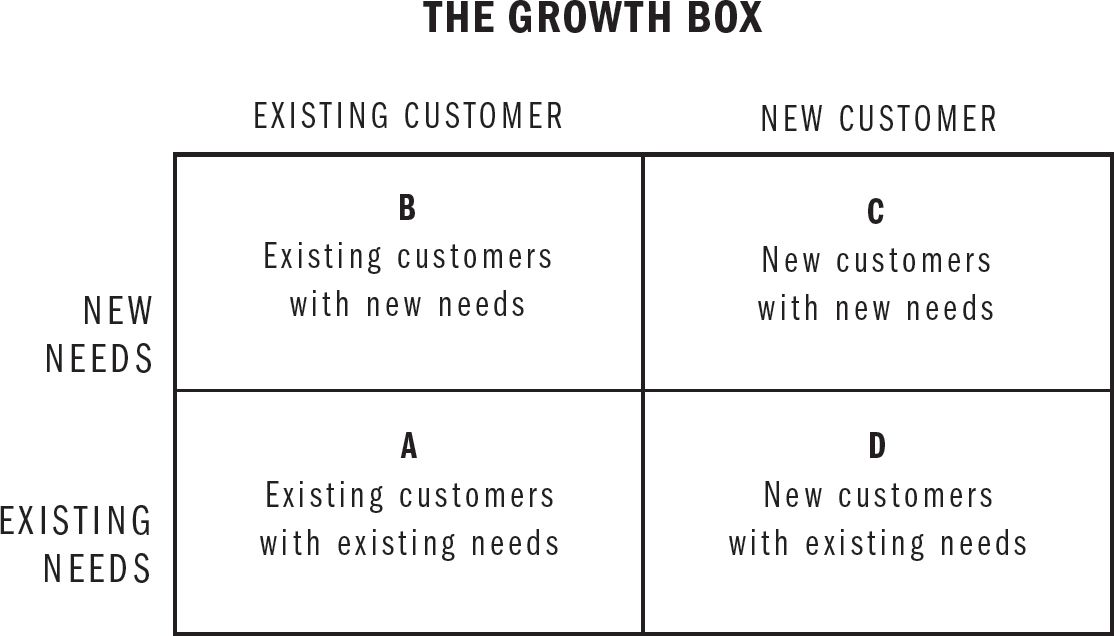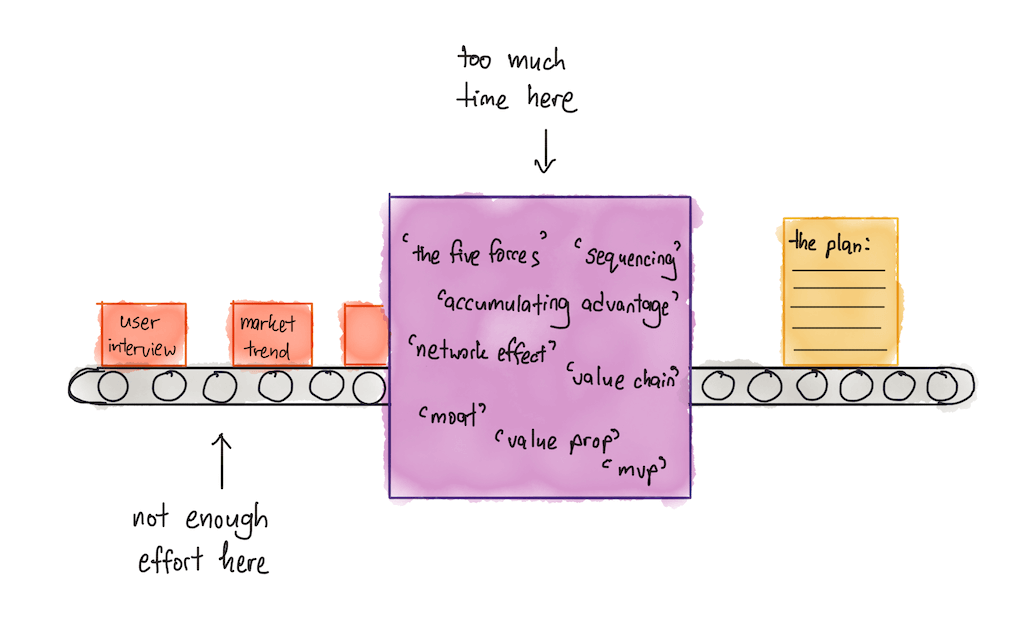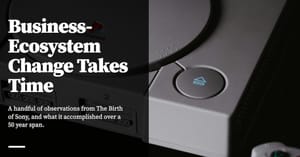When you’re inexperienced, frameworks are wonderful things.
Reality is messy and disorganised. Frameworks are anything but. Frameworks promise to bring order to reality in pleasing ways. They blunt the chaos and give you buckets with which to categorise your observations. Frameworks are so compelling to the human mind because the mind is a sense-making tool, and sense-making tools abhor not making sense of information. So it shouldn’t be a surprise that frameworks feel like they are the Right Way To Think About Things™.
But if you’ve attempted to put any framework to practice, you would know that frameworks are anything but easy to apply.
This could be something as innocuous as your company declaring that they are now ‘all-in’ on agile … and then ignoring the problems that come with implementation. Or it could be your marketing manager rigidly sticking to the standard business school growth box, with no adaptation to local conditions. It could be your engineering VP saying “test driven programming is the ONLY CORRECT WAY TO PROGRAM!” or your product manager shouting from the rooftops the wonder that is the 7 Powers book.

(If you haven’t been burnt by a framework yet, stop here. This post is not for you.)
Reality is messy. Things never seem to line up with the frameworks you find in books. In the legendary marketing classic Crossing The Chasm, Geoffrey Moore writes about the challenges technology companies face when moving from an early-adopter market to the mainstream. He categorises customers into innovators (technology enthusiasts), early-adopters (visionaries), early-majority (pragmatists), late-majority (conservatives), and laggards (skeptics). Everything is nice and simple until you attempt to identify real-world examples of each archetype within your customer base. Perhaps Joe from Acme Corp bought your offering because he saw a great future with your product in it (“he’s an early-adopter visionary!” you exclaim). Or perhaps he bought you because you were the cheapest goddamn offering around.
Frameworks can act like blinkers. Once you use them to interpret the world around you, it can be difficult to view things any other way. Your marketing team, for instance, reads Crossing The Chasm and argues over customer categorisation. “I think Joe is a visionary!” — “No, he’s an innovator, Acme buys the latest tools!”. At no point do you pause to wonder if Moore’s book applies to your specific company, in your specific industry, for your specific market.
Frameworks are so widespread in business today that you can’t go a day without some blog post being shared on Slack, talking about a shiny new approach to marketing, or business, or strategy, or product. People talk about the 7 Powers or the 5 Forces or the Gartner hype cycle or the Perez technology adoption model. The prevailing business culture is to use frameworks as a crutch for sense-making — and I am as guilty of this as the next person.
This habit hasn’t gone unnoticed. In a recent newsletter, serial entrepreneur Hiten Shah argues that startup founders spend too much time studying strategy frameworks, and too little time gathering a high quality and quantity of inputs to those frameworks.

He attributes this to the fact that reading up on strategy is easier for founders to do than collecting actual data. But there’s another problem inherent with this approach: if you collect data after you’ve read up on strategy frameworks, your tendency is to filter your observations of reality in service of some framework.
Perhaps Joe from Acme is an actual Crossing-The-Chasm-style visionary. Perhaps you should ignore the influence of price on his decision, because Moore’s framework has nothing to say on price. But perhaps you shouldn’t — perhaps price sensitivity matters a great deal in your market, and your fixation on Moore’s framework is making you miss out on that. If you’re wondering why I’m using such a specific example in a post about such a generic topic — well, you can probably guess: I was bitten by this particular mistake (and by the general form of it) more times than I can count.
The flip side of ‘framework-as-sensemaking-crutch’ is that your ability to make sense of your unique situation is titrated through the framework’s model of the reality. The more you rely on frameworks, the more you lose your ability to think from first principles. Conversely, the less time you spent thinking through the lens of a framework, the more embedded you remain in reality ... and the more critical you can be.
So here’s an interesting question to ask yourself: when was the last time you stewed in the messiness of reality? When was the last time you took in business observations ... without the glass of a framework layered between?
To make this more concrete: when was the last time that you did a whole bunch of user interviews, read a stack of reports, or clicked around in a company dashboard … and not do anything to interpret it?
Try it. You’ll discover that this is more difficult that it sounds. You will find that your brain reaches instinctively for the nearest available business framework, in order to organise all the information it’s been presented with. Worse, your brain will prompt you to notice certain things that are consistent with the aforementioned framework, and it will prod you to discard observations that aren’t. But resist this. Experience reality without the frameworks. Stew in the messiness of the inputs.
When it comes time to apply some framework — later — you’ll be surprised at how much more critical you’d have become. This doesn’t mean that frameworks are wrong, or bad, or inferior. It just means — to paraphrase statistician George Box — that all frameworks are wrong, but some are useful. Delaying their use paradoxically makes them less wrong, and more useful, than you might otherwise expect.
Originally published , last updated .
This article is part of the Expertise Acceleration topic cluster. Read more from this topic here→





